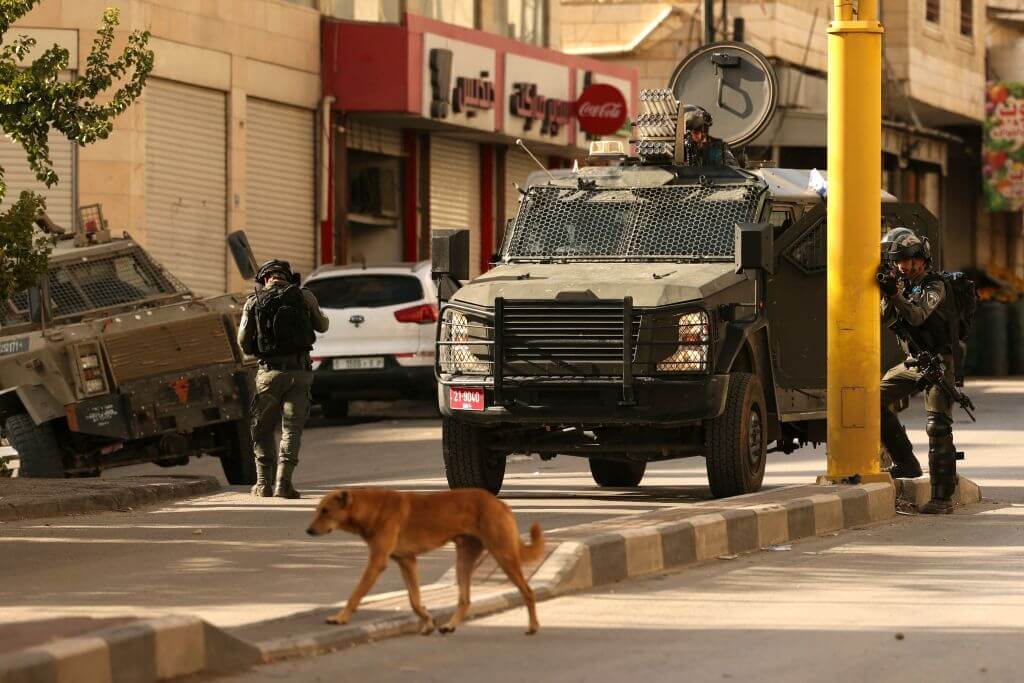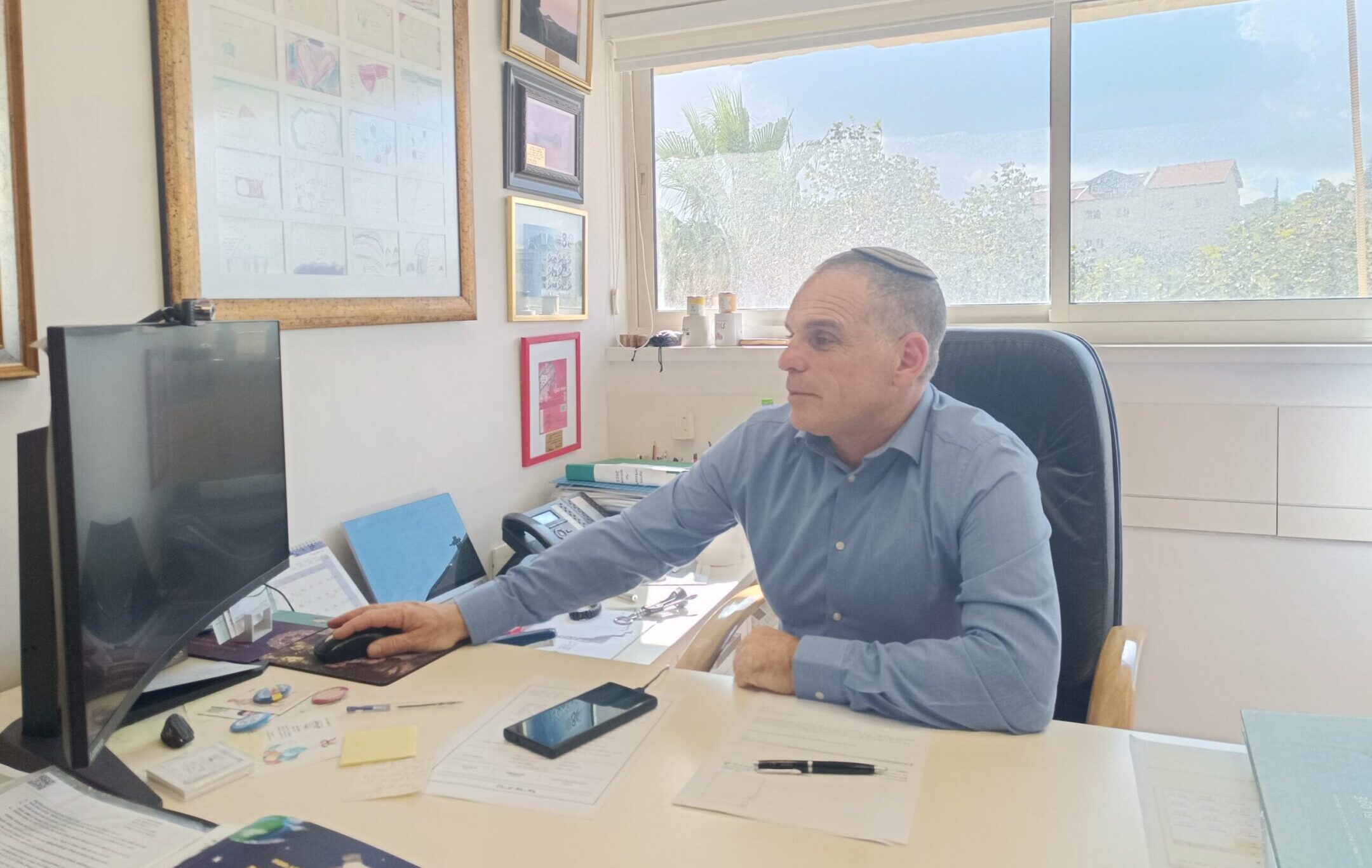1 dead, 5 wounded in shooting attack at Jerusalem checkpoint with long security lines
“Anybody who wants to do harm can just go into that traffic jam,” a West Bank Jewish leader warned about the checkpoint the day before the attack

Israeli security forces surround the area of a Palestinian home, believed to belong to one of the gunmen that attacked an Israel checkpoint on the edge of Jerusalem earlier in the day, during a military operation in the occupied West Bank city of Hebron on November 16, 2023, amid the ongoing battles between Israel and the Palestinian group Hamas. Photo by Getty Images
TEL AVIV (JTA) — Gunmen killed one soldier and injured five others Thursday in an attack at a West Bank checkpoint connecting Jerusalem and Israeli settlements to the south.
Israeli security sources say the attack was a failed attempt by Hamas, the Gaza-based terror group, to carry out a wider massacre in Jerusalem. Two of the attackers were from the southern West Bank city of Hebron, according to Israeli officials. In their car, security officials say they found outfits resembling IDF uniforms and enough weapons and ammunition for a larger-scale attack.
Following its Oct. 7 invasion of Israel, Hamas hoped to inspire attacks against Israelis in the West Bank. Since that date, the territory has seen a spike in violence, including an uptick in Israeli military raids on suspected terror cells. There has also been a rash of Israeli settler attacks on Palestinian villages, forcing their occupants out. Since Oct. 7, at least one other Israeli has been killed in a terror attack on a West Bank road, and more than 100 Palestinians have been killed, largely by Israeli forces.
Security at West Bank checkpoints has also increased since the war’s outbreak, forcing Israeli motorists to wait in long lines. Perhaps ironically, those long waits leave the drivers exposed to shooting attacks like the one on Thursday, said Oded Revivi, mayor of the nearby West Bank settlement of Efrat.
“In order to make sure that whoever enters Jerusalem is safe, you can sometimes have a roadblock which goes back for a mile,” Revivi told the Jewish Telegraphic Agency. “That is probably bigger, the amount of people that are stuck in there, than [live in] some of the Jewish towns in Judea and Samaria,” a biblical term for the West Bank.
“So all of a sudden, that becomes a target. Anybody who wants to do harm can just go into that traffic jam, everybody’s stuck in their cars, there is no first response unit there, there is nowhere to run away from,” he added. “And so there are different scenarios which make the reality very scary and very worrying.”

Oded Revivi, head of the Efrat Local Council, says West Bank residents are more vulnerable on the roads than in their homes. (Eliyahu Freedman)
The soldier killed on Thursday was Corporal Avraham Fetena, 20, from Haifa. The five other people wounded were also members of security forces.
Israel’s Shin Bet security agency identified one of the three terrorists, all of whom were killed during the encounter, as the 28-year-old son of Hamas’ former head in Hebron, according to local reports.
The checkpoint where the shooting occurred leads to a tunnel highway in the southern West Bank that was built to shield Israeli drivers from terror attacks when commuting between Jerusalem and Israeli settlements. A second major tunnel is currently being added to ease traffic. During the Second Intifada, a large fence was also built to prevent shooting attacks on the new road to Jerusalem, which is restricted to Israeli vehicles and leads to the checkpoint.
But even prior to Thursday’s shooting, Revivi said that local Israeli settlers’ “sense of security has definitely been hit extremely hard,” in spite of what he says is the “greatest army presence in the West Bank in the last 10 years.”
The Israeli government is offering weapons and funding for West Bank settlements to ramp up security, and to equip them to fend off the kind of attack Israel experienced on Oct. 7. But Revivi said the state needs to do more to ensure the settlers’ security.
“We have to understand at the end of the day that we only have one army, they’re the ones who’s supposed to provide security for all these different scenarios,” Revivi said. “And there’s absolutely no way that we can provide ourselves the level of security to the most extreme scenario based on civilian funds.”
This article originally appeared on JTA.org.













